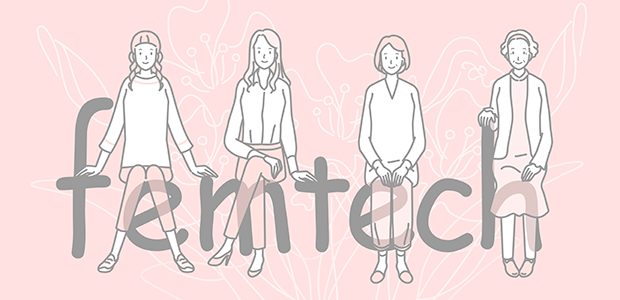
Femtech: the market opportunity beyond fertility
Last week, US President Joe Biden signed a new initiative to support Women’s Health Research, a welcome impulse to close the gender health research gap.
Health issues that only affect women are desperately under-researched, such as endometriosis, a pathology of the uterus lining with no cure, affecting 1 in 10 women, and taking eight years to diagnose (if you are black, it takes even longer). Other issues that disproportionately affect women, such as autoimmune diseases like lupus, IBS, or rheumatoid arthritis, where over 80% of patients are female, are also far away from being understood by science and are, since COVID-19, on the rise. Other common health issues like heart problems affect women differently and hence, the rate of misdiagnosing heart attacks is much higher in women.
But because of this gap, the unmet needs are huge, and there is also an opportunity for innovation in the field with a massive market potential: the segment of health innovation focusing on novel solutions in women’s health, called femtech, is now valued as a €1 trillion market by FemHealth Insights. In this industry, 80% of founders are female, a stark contrast to the general startup world if you consider that, according to the Atomico report, only 87% of all VC money in Europe went to all-male founding teams in 2022, while only 1% (!) went to all-female founding teams. Femtech founders are, more often than not, female patients or former patients who get on the journey to entrepreneurship out of sheer frustration with current solutions offered to health problems they experienced themselves. As Laura Vidal, Founder of HappySneeze, put it about her pelvic floor health solution: “We need to solve this problem; if we don’t do this, who else will?”
In Europe, VCs have finally started to pay some attention to the opportunity, following an already accelerated hype in the US, and many big firms have added femtech companies to their portfolio. Many investors have been smelling the roast for a while when it comes to problems such as fertility issues, which affect 1 in 6 couples, and recently, solutions for the natural phases in female health, such as menopause are also getting the attention they deserve. So, despite a dire time in general for startup fundraising, where the money invested in European startups is at a historic low (except for AI), we still see a slow but steady increase of Femtech startups raising funding rounds and (no surprise considering the gap they are filling) many companies in the sector are growing, while other startups suffer the economic downturn.
But opportunity lies also in other segments of women’s health. Women themselves just don’t know enough about their own bodies and their natural physiological functions, and thus it is often not easy for them to understand what is normal and what is not. How long is a normal period? Is it normal to have light spotting in pregnancy? Are sore nipples normal in breastfeeding? These are just some of the questions that millions of women are trying to find in a sea of conflicting and contradictory information on Google. Traditionally, the female body and its reproductive functions have been covered by a thick, dusty layer of tabus and stigma. Because research and education are scarce, myths persist in all societies and all over the world. Some of them from the lactation space include, “You can’t eat broccoli when you are breastfeeding”, “sore nipples at the beginning of breastfeeding are normal” or a curious one “Breast milk doesn’t nourish babies after a certain age anymore”.
Here is where startups like LactApp successfully offer a reliable and personalised source of information and support. At the beginning of their entrepreneurship journey, the founders of the bestselling breastfeeding app from Barcelona have been encountering incredulous comments, as Co-founder and COO Maria Berruezo recounts: “They said: really, you want to build a company about breastfeeding?” and potential investors have been concerned about the lifetime value and limited scope of the app. Today, the company has over 30 employees, has opened a brick-and-mortar clinic in Barcelona, and counts Adeslas, Spain’s biggest private health insurance amongst its corporate customers. LactApp also engages in its own research by, for example, working on scientific evidence for pathologies in lactation such as mastitis: today, there are over 10,000 research papers on mastitis in cows, but only just over 1,000 in human females; we are only just scratching the surface of understanding this issue.
In conclusion, as the femtech sector gains momentum, it not only addresses pathological health concerns but also provides opportunities through the empowerment and education of women regarding their natural body functions. The journey of startups like LactApp, thriving in the breastfeeding segment, where there previously was no market, shows the business potential of innovative solutions in women's health. There is still so much more to discover and resolve, but a common sentiment in the industry unites everyone working there: this is only the start.

